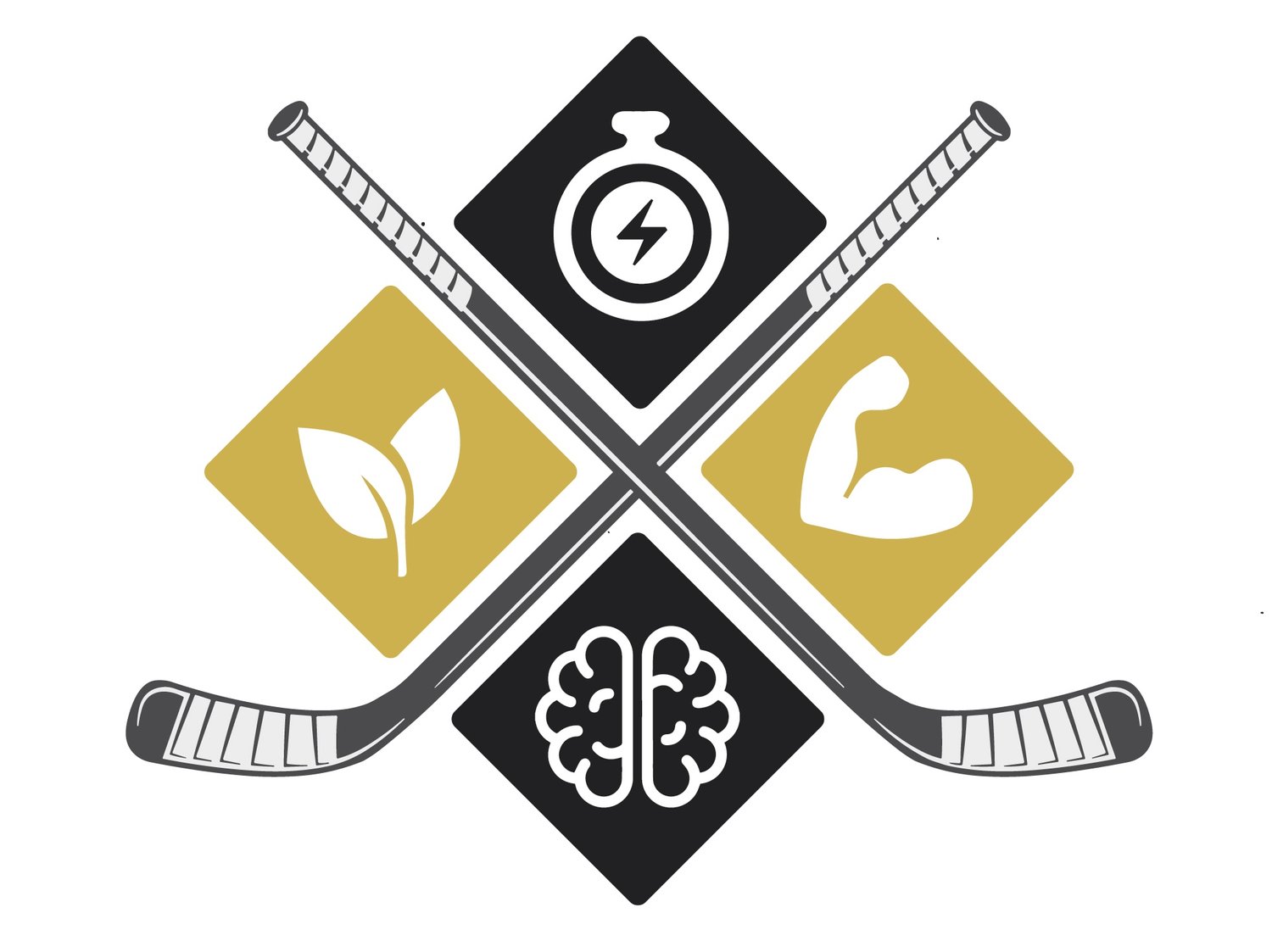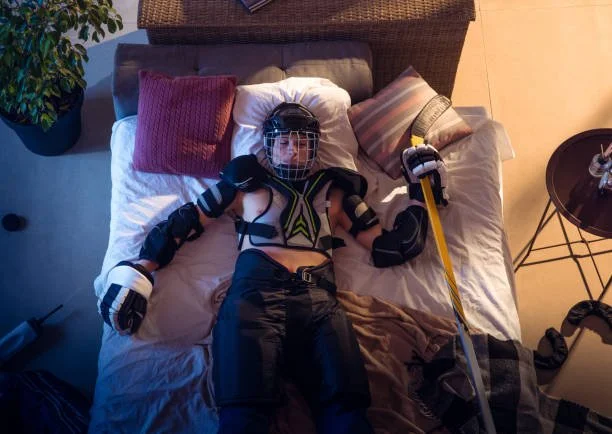You Snooze, You Don’t Lose
For Americans like me, the Super Bowl was this past Sunday. While I could write an entire blog post that the Monday after the Super Bowl should be a national holiday (especially because there is a national holiday typically the following Monday for Presidents’ Day), I will refrain. Like everyone, I showed up to work in the morning at my normal time, running on five hours of sleep, and started to think about the implications the lack of sleep could have.
There are studies that have come out (speaking on the increase in fatal car accidents the morning and afternoon following spring Daylight Savings Time when the public loses an hour of sleep. I couldn’t help but wonder if there are similar statistics in the United States following the Superbowl.
Instances like this should bring the emphasis of proper sleep to the forefront. Everyone knows its importance, but it can be often overlooked to forego social events, sporting events, or even doom scrolling on your phone late at night.
But how important is it exactly?
Sleep has a profound impact on the brain, specifically with your memory. Multiple studies have looked at the impact of sleep before and after learning and seen impressive results. When learning a set of facts, there is a limited amount of storage in your short-term memory. When divided in to two groups, a sleep group and a non-sleep group, the sleep group was able to learn a second set of facts at a 20% faster rate. This is because their sleep session moved the first sets of facts from their short-term memory to their long-term memory, opening storage for the new, second set of facts. On top of that, the sleep group also remembered the first set of facts at a 20-40% higher rate.
Being able to remember facts is all good and well, but how that effects your development and performance needs to be emphasized. Have you ever heard of muscle memory? That’s a misnomer, because memory is actually stored in your brain and gives electrical signals to your muscle to perform specific skills. So, when you’re trying to learn those new skills, whether that be stickhandling, shooting, etc., sleep transfers your skill sessions into long term patterns that your body remembers.
So instead of saying practice makes perfect, you should be saying…
Practice, with sleep, makes perfect.
When it comes to the body, sleep also has plenty of influence there. There have been numerous studies that link heart disease and heart attack to lack of sleep. There are lots of mechanisms, but the main culprit seems to be the sympathetic nervous system. While the well-known fight-or-flight sympathetic nervous system is great for alertness, power production, and performance, you don’t want to be activating it when it’s not necessary because it elevates your heart rate, respiration, and anxiety while decreasing your immune function.
Maybe you think because you’re fit that you’re not concerned about your heart, so let’s look at your body composition. Lack of sleep causes an increase in the hormone ghrelin, which triggers an increase in hunger, and a decrease in leptin, which triggers a sense of fullness when you’ve had enough to eat. Individuals in studies who sleep 4.5 hours vs. 8.5 hours ate, on average, 300 more calories per meal due to their hormone imbalance. More calories ate = poor body composition.
Even if you have all the mental strength in the world and can fight the hunger signals from your hormones, your body will still react accordingly. Researchers put participants of a study on a low-calorie diet for two weeks and allowed half of the participants to sleep for 8.5 hours per night, and the others to sleep for 5.5 hours per night. Both groups lost weight, but the group that slept 5.5 hours per night had 70% of their weight loss come from muscle, while the group that slept 8.5 hours per night had less than 50% of their weight loss come from muscle. More muscle loss = poor body composition.
I could go on and on with how important this is (which is why there’s so many books written on sleep), but I’ll stop there and hope you understand the true potential sleep has on your hockey development and performance.
Of course, I’m not telling anyone to avoid social interactions, like a Superbowl party, to get their eight hours because these interactions are vital for a healthy, balanced lifestyle. But there are many science-backed tips to getting a longer, deeper night of sleep.
#1 – Stick to a Sleep Schedule
The body loves routine, and humans are creatures of habit. Sticking to a sleep schedule means weekdays and weekends. Sleeping in on the weekends to “catch up on sleep” is like traveling across time zones. If you wake up three hours later on the weekend, that’s no different than waking up three hours later after flying from one end of the United States to the other.
Although waking up earlier than you want on the weekends may be a tough sell, it makes waking up at your normal time on Monday morning that much easier because your body will be accustomed to waking up then.
Try setting an alarm on your phone for your time to wake up and your time to go to bed. Aim to keep both of those times within 60-minutes of each other regardless of the day or circumstance.
#2 – Have Proper Sunlight Exposure
The biggest input for your circadian rhythm is the sun. For thousands of years and multiple generations, the body knew when to wake up and go to sleep due to sunrise and sunset. Now, with the invention of electricity, artificial light interrupts the signals from the sun, through the eyes, and to the brain that it’s time to wake up or go to sleep.
Upon waking, aim to get sunlight (not through a window) immediately for 10-15 minutes. Even on a cloudy day, UV rays are still breaking through the clouds. If you wake up prior to sunrise, turn on bright, overhead lights in your house to artificially stimulate the signals in your brain that it’s time to wake up, while still trying to get outside right when the sun comes up for that day.
At night, dim the lights to give signals to your brain that it’s getting close to bedtime. If you can turn off overhead lights and go through your nighttime activities with lower intensity lamps or candlelight, that is best.
#3 – Avoid Exercise Too Close to Bed
Exercise is great, but exercise too close to bed is not. Just like lack of sleep stimulates the sympathetic nervous system, the inverse is also true. When working out, the sympathetic nervous system is activated, which elevates heart rate, respiration, and alertness that make it difficult to fall asleep. Aim to work out as early in the day as your schedule permits.
#4 – Avoid Caffeine Too Close to Bed
As an avid coffee drinker, I can confidently say that too many people rely on caffeine. While this stimulant is useful for mental and physical performance, it stays in your system far longer than many know. The average half-life (the time interval needed for a substance to be reduced to half of its amount) of caffeine is five hours. That means that if you have 200mg of caffeine at 5:00 PM before a 7:00 PM game, you still have 100mg of caffeine in your system when that game is over at 10:00 PM.
The rate at which your body metabolizes caffeine is individual based on your genetics, size, and activity, but as a rule of thumb, you should limit caffeine eight, if not ten, hours before bed.
#5 – Avoid Alcohol Too Close to Bed
Many people have heard the term “night cap” as having an alcoholic drink prior to bed to help you fall asleep. While the drink may help you relax to fall asleep, the type of sleep you’re getting doesn’t make drinking worth it.
Alcohol robs you of your REM sleep, which is where the most brain activity occurs, helping you with learning. Because you don’t fall deep enough in to sleep to get REM, it’s much easier to be woken up (even if you don’t notice it) throughout the night.
With alcohol, I personally try to use the Rule of 3 and have had success:
- No more than three drinks per night.
- No more than three nights of drinking per week.
- No alcohol within three hours of bed.
#6 – Avoid Large Meals/Beverages Too Close to Bed
Snacking is okay, but eating large volumes of food can cause discomfort and indigestion, both of which interfere with the ability to relax to fall asleep.
Drinking liquids too close to bed can cause you to wake up in the middle of the night to have to go the bathroom. This disrupts your sleep and can make it more difficult to fall back asleep.
Another rule of thumb I use before bed is the 3, 2, 1 Method:
- Reduce food intake three hours before bed.
- Reduce fluid intake two hours before bed.
- Reduce screen time one hour before bed.
#7 – Avoid Naps Too Late in the Afternoon
Sleep pressure slowly builds up every second you are awake, making you feel more tired as you stay up later. This is why caffeine is so effective because it blocks the receptors in the brain from telling you that you’re tired.
Napping also decreases sleep pressure, allowing you to wake up feeling better mentally and physically. But napping too late in the afternoon doesn’t allow for the sleep pressure to build back up by your normal bedtime to be able to fall asleep.
Naps should also be 20-30 minutes in length. Any longer and you run the risk of falling in to too deep of a sleep, leaving you groggy by the time you wake up. As an example, when I take my naps, I sent my alarm for exactly 30-minutes, so I know that even if it takes me a few minutes to fall asleep, I will still be well within the range to get all the benefits, without any of the negatives.
#8 – Keep Your Bedroom Cool, Dark, Quiet
While sleeping, you are very sensitive to temperature, light, and sound. Any fluctuation in any of these variables can stop you from falling asleep or wake you up in the middle of the night.
Aim to keep the temperature in your bedroom between 65-68o Fahrenheit. If this isn’t possible, there’s many products, like the Chilipad, that you can lay on at night to keep you at your optimal temperature.
Aim to keep your room as dark as possible so that your brain knows it’s time to sleep. Blackout curtains over your windows or a sleep mask guarantee that your room will be pitch black.
Even the best curtains or mask can’t help you if you’re staring at your phone before bed. Phones radiate blue light that decrease natural melatonin production in your body. There is a night shift mode on iPhones and blue light blocking glasses have become popular, but these tools only reduce the blue light, not remove it completely. Besides the light, scrolling on your phone can cause alertness and excitement that keep your mind racing before bed. Remember the 3, 2, 1 Method, ditch the electronics an hour before bed.
Keeping your room as quiet as possible might seem like the best bet, but any loud noise from the outside world could jolt you out of your slumber. Instead, use a fan or a white noise machine to drown out any loud noises.
#9 – Take a Hot Shower/Bath Before Bed
Many people get tired after taking a hot shower or bath, which causes confusion about optimal bedroom temperature being 65-68o Fahrenheit. You don’t fall asleep because you’re toasty and warm, but instead, the hot shower or bath causes blood to move to the surface of your skin, which is why your skin turns red from the hot water. Those dilated blood vessels at the surface of your skin cause core body temperature to drop, which is a mechanism that’s required to fall asleep. Plus, a hot shower or bath is relaxing, helping people fall asleep easier.
#10 – If You Can’t Fall Asleep, Don’t Lie in Bed Awake
Everyone has found themselves staring at the ceiling wondering why they can’t fall asleep. Continuing to lay there can cause anxiety about the fact you won’t be getting enough sleep for tomorrow, and in return that anxiety decreases your likelihood of falling asleep even more, creating this feedback loop.
As a rule of thumb, if you can’t fall asleep after 20-minutes, get out of bed and do something else for 20-minutes before returning to your bed.
And no, this doesn’t mean you’re allowed to go scroll your phone for 20-minutes at midnight.
Get out of bed and read a chapter of a book, do some light stretching, or take a shower if you haven’t. Hell, I’ve even folded laundry or done the dishes if I couldn’t fall asleep. Whatever you choose to do, don’t just lie there. You want your bed to be for sleeping only so that when your head hits the pillow, your brain and body instantly shut off. The longer you lay there, the more signals you’re giving your body that in the future, it’s okay to not fall asleep while in bed.
I hope this post hasn’t put you to sleep, but instead, hope you’ve walked away with information that you can act on tonight. Unfortunately, in hockey, the schedule doesn’t set you up for success. Games are late at night, and activating the sympathetic nervous system from exercise prevents you from falling asleep. Many players have caffeine before those games, which will still be in your system after the game. Following the game, players need to refuel with a meal and rehydrate with liquids to start the recovery process. This can cause indigestion and waking up to go to the bathroom in the middle of the night.
These tips are to create the optimal scenario, but real life is never optimal. As many of these instances pile up, double down on the actions that you can control. Don’t drink alcohol after your games, limit your screen time prior to bed, and make sure when you finally get in to bed, the environment is cool, dark, and quiet. 1/3 of your life will be spent sleeping, make sure you’re taking advantage of it.


